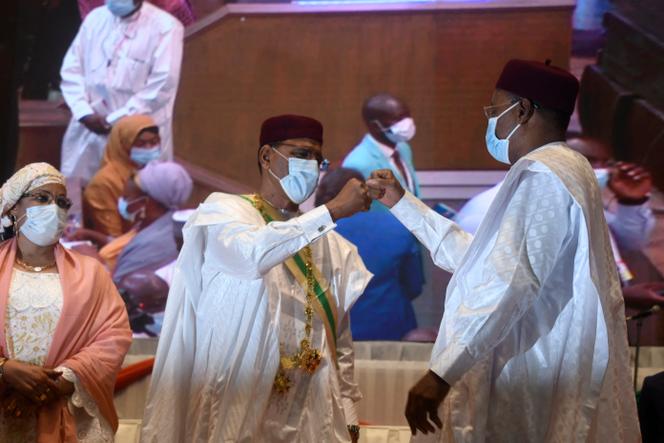


It was once customary in Niamey to say you couldn't slip a sheet of cigarette paper between former president Mahamadou Issoufou and his successor Mohamed Bazoum, such was their closeness forged over 30 years of political companionship. Since the country's coup d'état on July 26, their rapport has been shaken, whether among the two men's circles or in neighboring capitals.
The former head of state (2011-2021) Issoufou is, at best, criticized for not condemning with sufficient fervor the putsch led by the commander of his presidential guard, who had been kept in office by his "friend of 30 years." At worst, he is suspected of having knowingly allowed the military to carry out their rebellious plan.
It was three weeks after the coup that Issoufou broke his silence. He did so on August 17 in the columns of Jeune Afrique, a French media outlet specializing in news from the continent. At the time, he said he was mediating between the military and the president, who was being held prisoner with his wife and son in his residence. His objective was "the release of President Mohamed Bazoum and his restoration to office."
Reacting to rumors accusing him of manipulating the generals, or even of being the mastermind behind the putsch, the former Nigerien president said he felt "insulted, [his] intelligence hurt." "Those who are spreading this type of rumor are the very ones who, from day one, have sought to divide me and Bazoum. But our friendship has always been stronger than that," he said.
Those who attended the handover ceremony between the old and new presidents in Niamey in March 2021 remember the warmth of their embrace, far beyond that required by protocol. In a Nigerian political environment marked by betrayals and military coups, the two men have – to this day – walked together. Born in 1952, Issoufou has progressed, with the privilege of age, on the road to power, one step ahead of the man eight years his junior. "It was he who introduced me to trade unionism and politics," said Bazoum shortly after his election.
The two men grew up in the melting pot of the trade union struggle, and together, in 1990, they laid the foundations of the Nigerian Party for Democracy and Socialism (PNDS-Tarayya). This party was the driving force behind Issoufou's victory in the 2011 presidential election, his second term in office in 2016, and Bazoum's success, five years later.
Runner-up to the outgoing president, he was also endorsed by the bigwigs of the PNDS-Tarayya, which does not have the reputation of being "a yes-man party." Both prided themselves on having escaped the communitarian political logic ravaging countries in the Sahel. The origins of Bazoum, from the Arab tribe of Ouled Slimane in southern Libya, were of little importance in a Niger dominated by the Hausa and Djerma.
You have 58.8% of this article left to read. The rest is for subscribers only.
